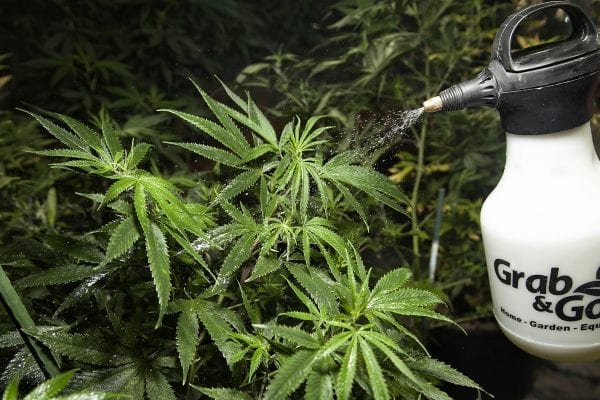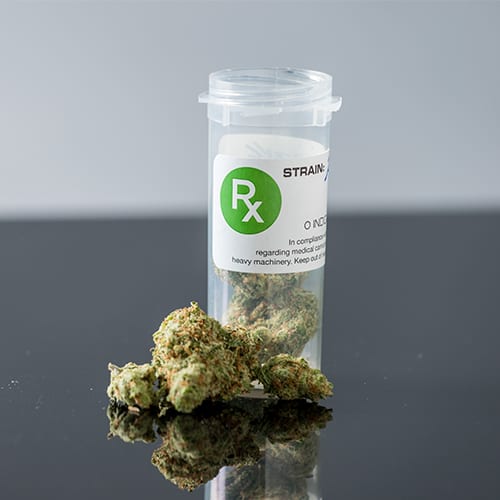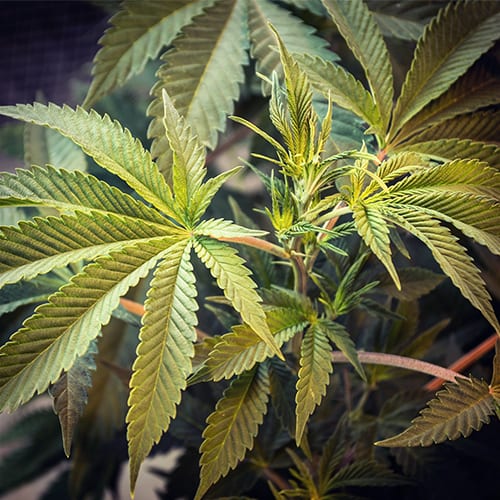
The Oregon Health Authority issued its first statewide pesticide alert last Friday when pesticide-tainted marijuana was found in a McMinnville cannabis dispensary.
The alert comes from two batches of marijuana from McMinnville’s New Leaf Dispensary — Dr. Jack (batch number G6J0051-02) and Marionberry (batch number G6J0051-01). Test results showed high residuals of a pesticide known as spinosad.
The state issues an alert if a product tests higher than .2 parts per million (ppm) of this specific pesticide. These two batches of flower soared above the allowed amount of spinosad with the Dr. Jack testing at 42 ppm and Marionberry at 22 ppm.
The tainted flower was sold to an estimated 130 medical patients between October 17-19. The OHA issued a recall of these two strains, warning customers in the McMinnville area to either return the affected flower to the dispensary or discard of it safely.
The EPA has a tolerance chart for spinosad residues on food products ranging from 85 ppm (for milk) to 0.02 ppm (for soybeans). Yes you read that right, the FDA allows adults and children to consume up to 85 ppm of spinosad in milk products but 42 ppm in cannabis calls for a health alert. But like many pesticides and chemical nutrients, tests on combusting and inhaling spinosad have not been conducted. While the creators of spinosad claim there is low toxicity to humans and other mammals, they admit their pesticide is highly toxic to bees and earthworms (the backbone to most food production ecosystems).
Spinosad is created from a soil bacteria (Saccharopolyspora spinosa) — it is a mixture of two chemicals, spinosyn A and spinosyn D. Spinosad is found in over 80 pest control products, ranging from agricultural crops to head lice medication.
For cannabis growers, spinosad is sold as an organic pest control for spider mites, thrips, mosquitos, ants and fruit flies. This particular pesticide is classified as an organic substance by the USDA National Organic Standards Board. It is also OMRI-listed for use in organic cultivation — a “certification” that often misleads cannabis farmers. OMRI stands for Organic Materials Review Institute and is commonly mistaken as an organic certification, however, OMRI simply reviews products that are approved for organic cultivation; they do not certify that the product itself is organic. Beyond the confusing technicalities, Spinosad is a pesticide sold as an organic pest control approved for use on organic crops.
Spinosad manufacturers boast about the short half-life of the pesticide — the company’s technical bulletin even states, “Now you can spray Swiss Chard with Spinosad and harvest a day later”…*gag*.
In this particular situation, the OHA did not call out the grower because of confidentiality protection under Oregon’s medical marijuana laws. However, the dispensary is taking a severe hit to its reputation, even though this particular pesticide is classified as organic and very commonly used by cannabis farmers.
After the OHA announcement, New Leaf Dispensary released an announcement:
“New Leaf CannaCenter is deeply troubled that it received product from a grower that did not meet the standards set by the Oregon Health Authority or the very high standards New Leaf always strives to maintain.
As soon as we learned about the problem, we immediately removed all of the remaining product from our inventory and cooperated fully with the OHA to remedy the situation. We look forward to continuing to work with the OHA to determine how the product reached New Leaf in the first place, since it had failed the mandatory testing undertaken by the grower.”
As Oregon transitions from the less-regulated medical market to the highly-regulated recreational market, testing of pesticides will become a standard procedure. And remember, as a customer, you can always request a copy of the pesticide test from your local dispensary.
SOURCE: MARIJUANA.COM





